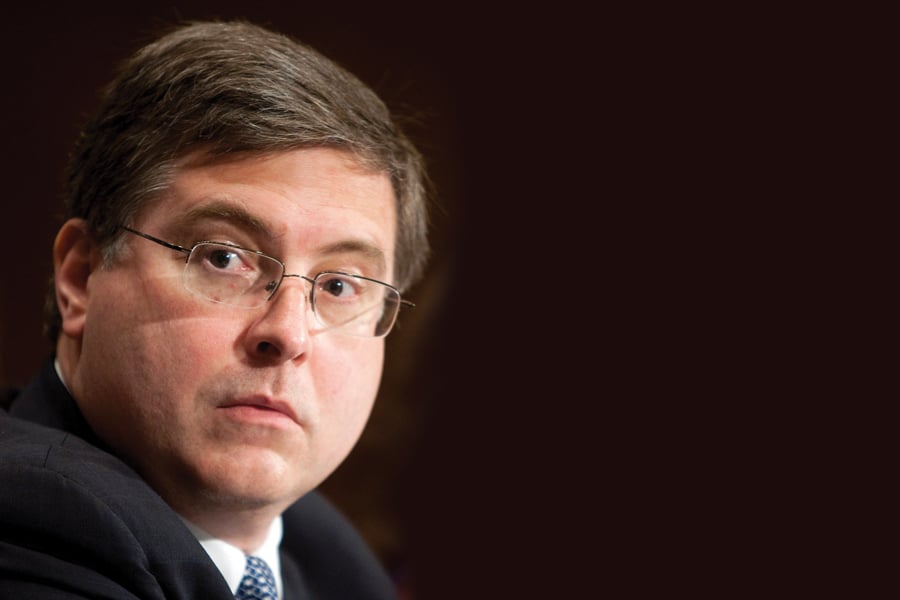Finra chief executive Robert Cook told industry compliance officials Monday the regulator does not levy fines in order to balance its budget.
"Fines are not collected for budget purposes," Mr. Cook said at a Securities Industry and Financial Markets Association
conference in Phoenix. "We don't have a target for fines. That's the key."
Last week, the Financial Industry Regulatory Authority Inc. released its
budget summary for 2019. The regulator anticipates that operating expenses will exceed operating revenues by about $76 million, and that the shortfall may require Finra to draw about $186 million from its reserves.
By relying on reserves to fill the budget gap, Finra will be able to avoid a membership fee increase for the
sixth year in a row.
The term "reserves" is sort of informal in Finra nomenclature. It's the equivalent of the regulator's investment portfolio, which is approximately $1.7 billion. Finra's goal is to maintain reserves at a level above annual expenses, which in 2019 are projected to be about $1 billion.
That gives Finra an approximately $700 billion pool to tap to cover a shortfalls.
"We have extra cash in the till, so to speak," Mr. Cook said in the SIFMA session.
Finra sets its budget assuming fines are zero. The actual fine level can vary widely from year to year. In 2016, Finra levied a
record $173.8 million. In 2017, the number dropped to $64.9 million.
In a SIFMA panel following Mr. Cook's session, Finra executive vice president and head of enforcement Susan Schroeder said fines are not an end in themselves, but are a way to send compliance messages.
"We think of fines as a way to tell that story," she said.
In an interview, Mr. Cook acknowledged concerns about whether Finra is trying to hit a certain level of fines each year. That's why the organization emphasizes that its budget doesn't depend on such revenue.
"I appreciate the question, and it's something we're trying to address through greater transparency and clarity in our thinking," he said.
In the next few weeks, Finra is expected to release its second annual accounting of how it
spends fine money.
EXAM REFORM, 529 INITIATIVE
Mr. Cook also addressed examination reform, telling the SIFMA audience that Finra is trying to ensure at least a six-month break for firms between examinations.
In addition, he reiterated that Finra launched its
self-reporting initiative on 529 college savings plan sales because it was noticing a lack of supervision surrounding the transactions. Brokerages were not taking the appropriate steps to determine what kind of 529 would be best for a client based on the client's objectives.
"It wasn't necessarily about what particular share class was being recommended," Mr. Cook said. "It was more about whether the supervision was happening at all."







